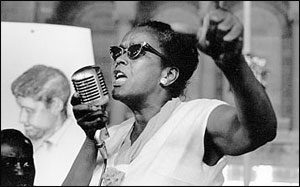As I have been preparing to teach, for the first time, “History and Methods of Missional Theology” this upcoming semester at United Seminary, a question keeps popping up: Can there be…is there such thing as…might there ever be… a postcolonial, missional theology (and a postcolonial, missional church)?
To many ears, “missional” sounds irredeemably conversionist, triumphalist, supremacist, exclusivist. Historically, the missional turn was motivated by a desire to move beyond those things: to be less parochial, conversionistic, and more ecumenical and socially conscious. To be less concerned about going out to “save the world” (read: convert the world) and more concerned with honestly and sincerely addressing real concerns and problems in the immediate, surrounding context of the local church. To be missional is to be “sent” by the missionary God, on behalf of and in service of the world.
The postcolonial impulse, which has been making the rounds through academic theology, creates an appropriate and understandable hesitation in theologians to wed themselves to anything that reflects a colonialist attitude of superiority (intellectual/religious/ethnic, or otherwise) or a neo-colonialist way of being which gives continued credence, by implicit support, to reigning imbalances in power and systemic inequities or injustices, whether of race/ethnicity, gender, sexuality, or religion.
The excitement over “being missional” can easily erase or undermine these postcolonial sensitivities and concerns. But perhaps there can be a missional theology that takes these concerns seriously.
Recently, I came across an essay by the postcolonialist theologian, Joerg Rieger, which offers an interesting suggestion along these lines. In “Theology and Mission Between Neocolonialism and Postcolonialism” (Mission Studies, 21/2, 2004), Rieger suggests that we approach missional theology / missional church less in terms of the common appeal to “outreach,” or an external orientation (the church focusing outside itself, addressing the ‘other” with some missional combination of proclamation of the gospel and works of service) and instead think in terms of “inreach,” which is to underscore the primacy of God’s initiative and God’s grace, working through and despite of the failings and shortcomings of the missionary. He points out that the missionary often needs conversion as much or more than the “other” to whom the missionary addresses her concern. As he puts it,
What is missing in the mission as outreach model is the ability to learn from the other in ways that lead to self-knowledge. What if the question is not first of all, What can we do? but, What is going on? and, How might we be part of the problem?
This turn to a critical reflection, seeking self-knowledge of the one “on mission,” is far from self-serving or narcissistic, but rather takes as priority the grace of God in any work of redemption, salvation, healing, etc. And it takes the notion of the fallibility of the church / the Christian and their complicity in all manner of sin and evil seriously, too. He goes on to say, of the “inreach” approach,
This insight moves counter to the colonial/neocolonial attitudes, according to which our main task is to bring something to others – or to “grace them” with our presence. Here, a radical reversal takes place. The first task of those who consider themselves to be in mission is to give up control, to commit things to God, and (as a result) to leave things in the hands of those to which the mission is directed. This latter part is, of course, the most difficult one. But here it shows whether we truly trust in God’s grace. As we learn to leave things in the hand of others, we learn anew what it means to leave things in the hands of God as well. In other words, as a reversal of power takes place, a reversal of authority happens as well.
This seems a welcome reversal of approach. It does not require giving up the task of mission, or even the call to be missional, but recognizes that the very call to be missional may require as much repentance and conversion from the Christian and from the church as from the “other.”
As a final note, those who know the seminal missional writings of Lesslie Newbigin will likely quickly assert that in his work lies at the very least the seeds of a postcolonial theology of mission. I hope to reflect more extensively on that work in coming days. But I would certainly be interested in hearing from others who have done reading and work on the missional turn–what are the possibilities for a postcolonial missional theology and missional church?











